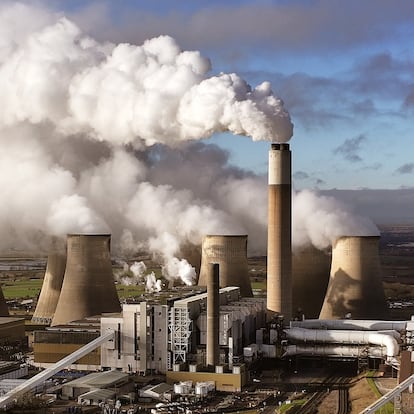
Reino Unido, cuna de las centrales de carbón, echa el cierre a la última que mantenía operando
Este lunes el Reino Unido ha dicho adiós a la electricidad alimentada con carbón. La última central eléctrica alimentada con este combustible fósil ha echado el cierre. Pone así fin a su relación con el que fue uno de sus motores económicos y principal responsable del calentamiento global.
¿Por qué esto es importante? Durante 142 años, el Reino Unido hizo del carbón elemento clave de sus avances. Este combustible fue fundamental durante la Revolución Industrial, y hasta los años noventa el consumo eléctrico del país dependía de él.
- Pero tras el cierre de su última central, el Reino Unido se ha convertido en el primer país del G7 que abandona por completo el carbón en su sector eléctrico.
¿Y qué hacen los demás países? Eslovaquia, Austria, Bélgica, Noruega, Suecia y Portugal ya dejaron de usar carbón en los últimos años.
- De hecho, un tercio de los países de la OCDE ya no lo emplea, y se espera que tres cuartas partes lo eliminen para 2030. España planea hacerlo para el próximo año.
- Las preocupaciones de los expertos climáticos se centran ahora en algunos países emergentes, como la India, China, Indonesia, Vietnam y Filipinas, donde la demanda de carbón está en aumento.
© Foto: Christopher Furlong (Getty Images)
Si quieres saber más, puedes leer aquí.